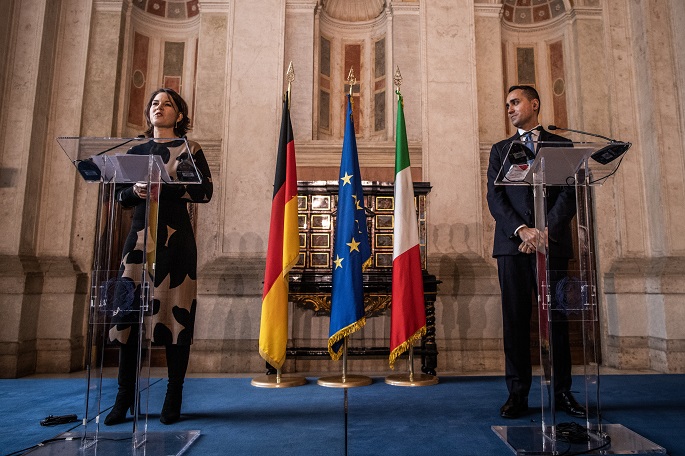Germany, Italy move closer on climate, refugees, Covid-19
Published : 10 Jan 2022, 23:11
Updated : 11 Jan 2022, 00:32
The foreign ministers of Germany and Italy have said they want to cooperate more closely on key European issues including combating pandemics, migration and climate protection.
The coronavirus pandemic had shown the value of working together in partnership, Foreign Minister Annalena Baerbock said on Monday after consultations with her Italian counterpart Luigi Di Maio in Rome.
In addition to climate and energy policy, she said the topics of refugees and migration should also play a central role in the planned German-Italian action plan.
Germany and Italy are "on the same side when it comes to issues of refugees and migration, namely in the understanding that humanity and orderly structures are needed at the external borders," she said.
Turning to Di Maio, she added that they wanted to work closely together "not only find humane and fair rules, but to arrive at a sustainable European asylum policy in which everyone assumes their responsibility."
She added that "the status quo is no longer sustainable."
Di Maio called for greater engagement from the international community on migration, which he said was "an effect of destabilization in diverse regions and not only North Africa."
Italy's Interior Ministry recorded a significant increase in migrants reaching the Mediterranean country in boats in 2021. According to the statistics, there were just over 67,000 boat migrants in 2021, compared with 34,150 the previous year.
The pandemic has also shown the value of being able to cooperate quickly, Baerbock said.
The two were also expected to address the ongoing stand-off between Russia and the West over Ukraine.
In the afternoon, a visit was planned to a vaccination centre with medical staff, researchers and members of the civil defence.
Afterwards, a discussion round on ecological restructuring in Europe was on the agenda at the Institute for International Affairs think tank.
The think tank bills itself as one of the most important and influential institutes in Italy. Its website states that its mission is to deepen awareness of the challenges of European and international politics through independent research, to advance debates and to propose solutions.
Di Maio has been Italy's foreign minister since September 2019. He retained the post even after the change of power in February 2021 and the formation of a new government under the former head of the European Central Bank, Mario Draghi.
Born in southern Italy, he belongs to the populist Five Star Movement (M5S). He was its party leader until the end of January 2020, but resigned from the post after internal disputes.
Baerbock, a Green politician who took office late last year as part of Germany's new centre-left coalition government, first met the 35-year-old in December on the fringes of the G7 foreign ministers' meeting in the English city of Liverpool.
Germany took over the presidency of the G7 at the beginning of the year.
The meeting between the ministers comes in the context of the action plan between Germany and Italy, which is to be signed at a bilateral summit in the middle of this year.
France and Italy signed a similar ation plan at the end of 2021, in which they agreed to work more closely on defence, the economy and education.


